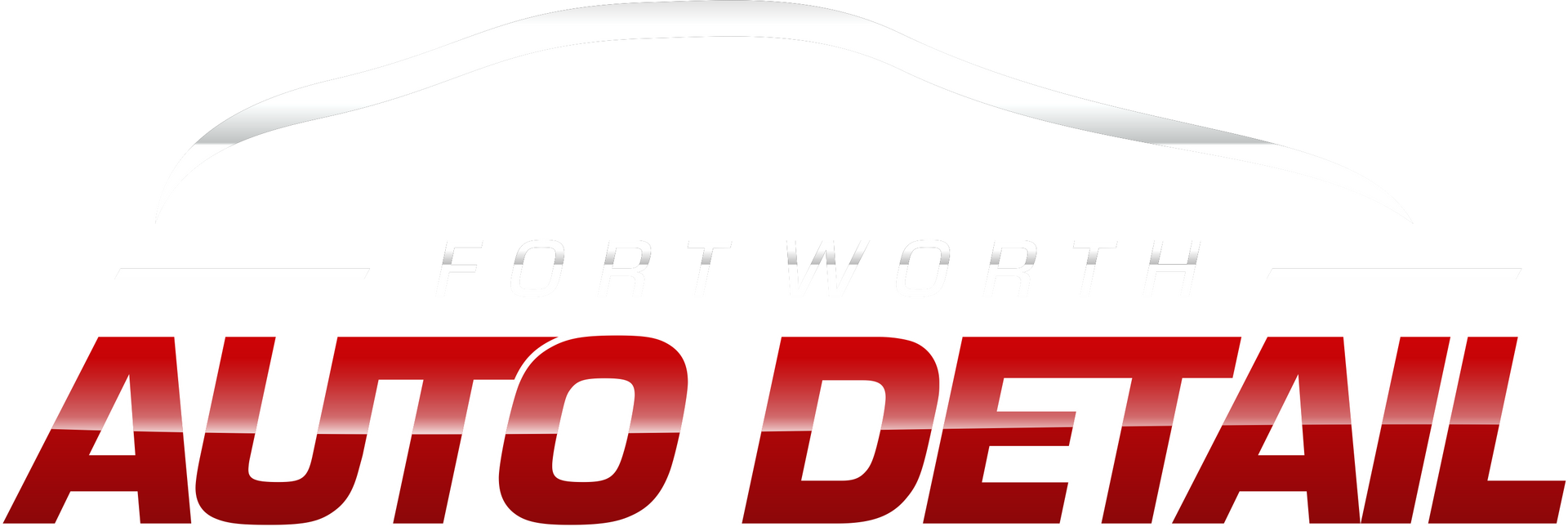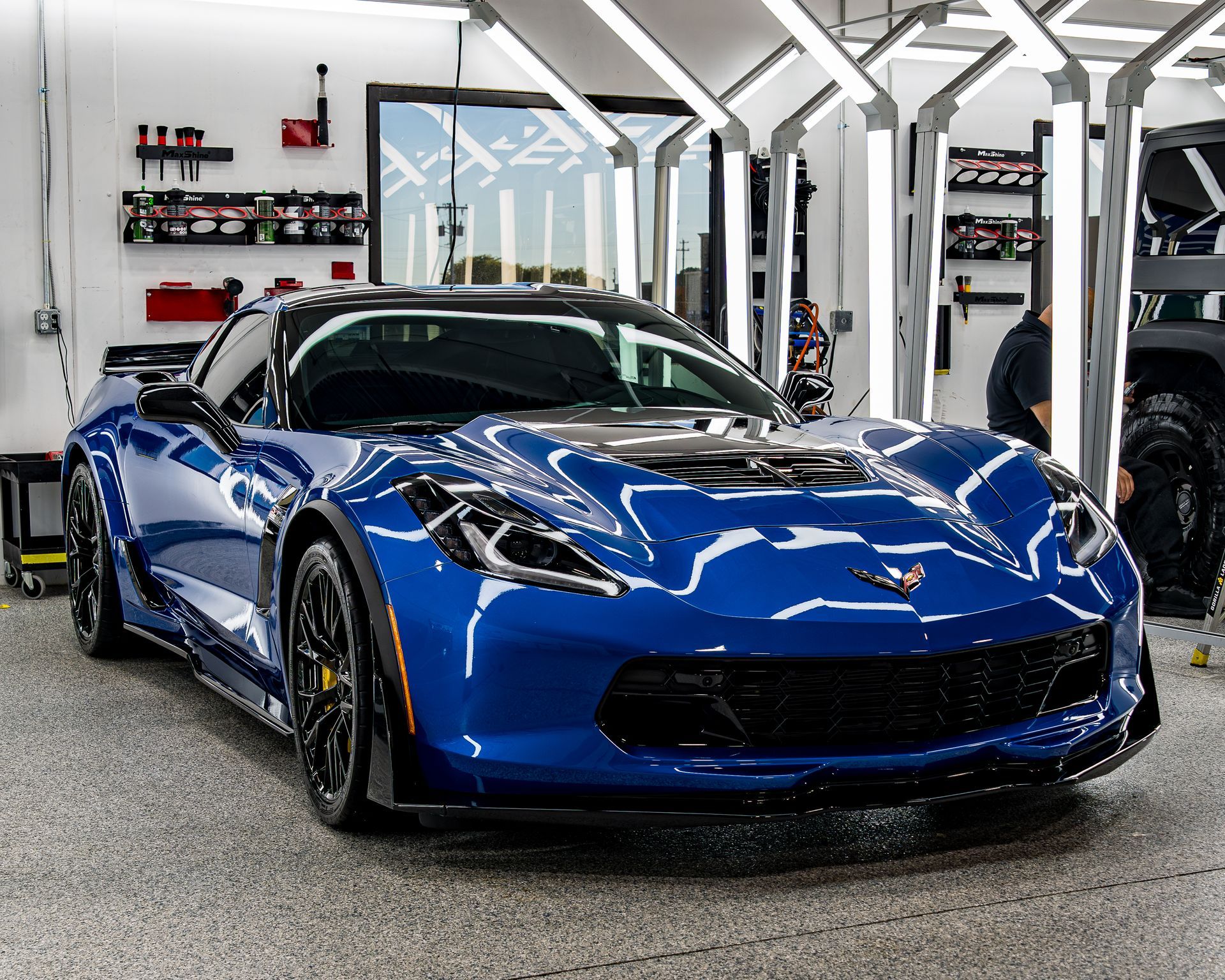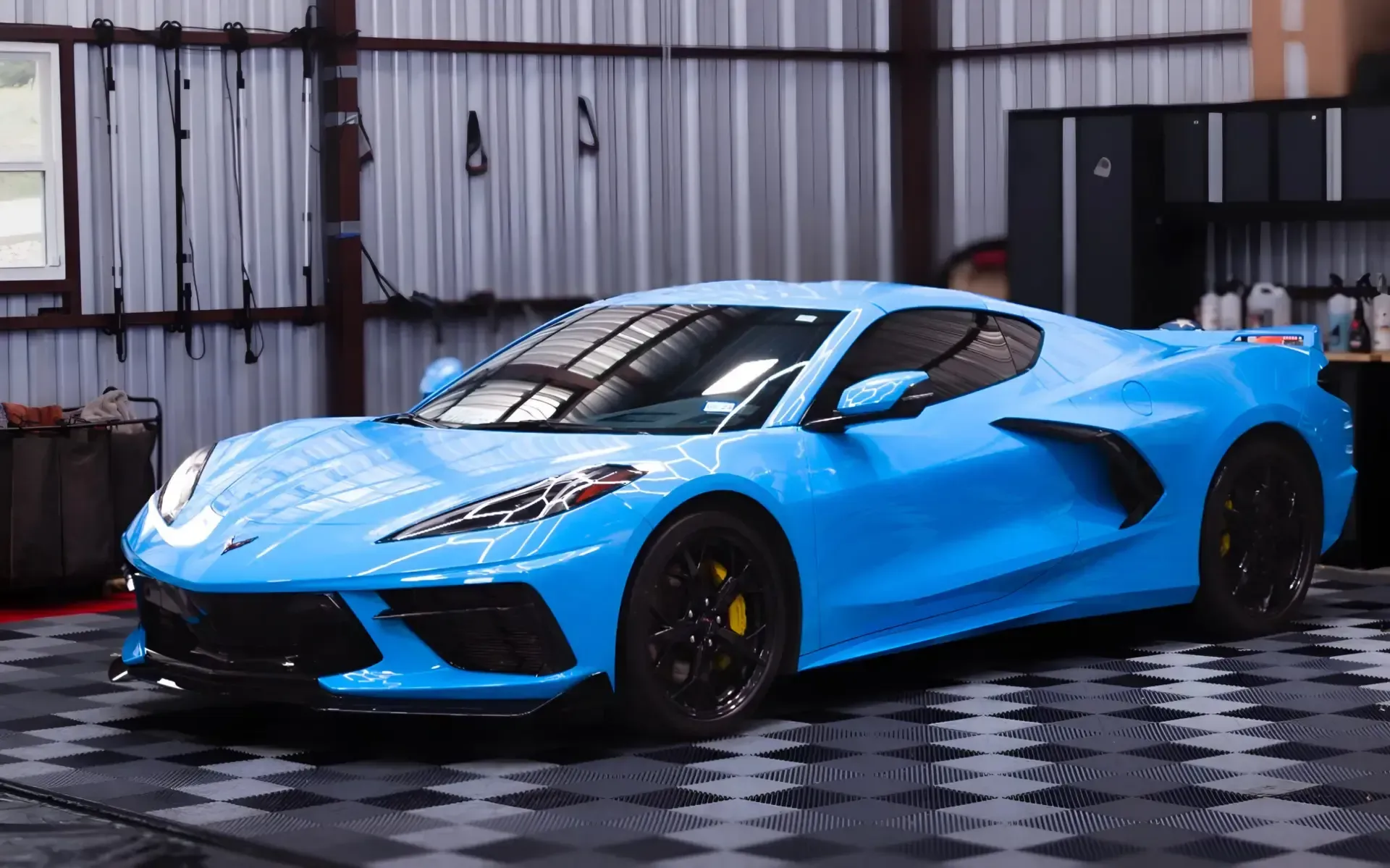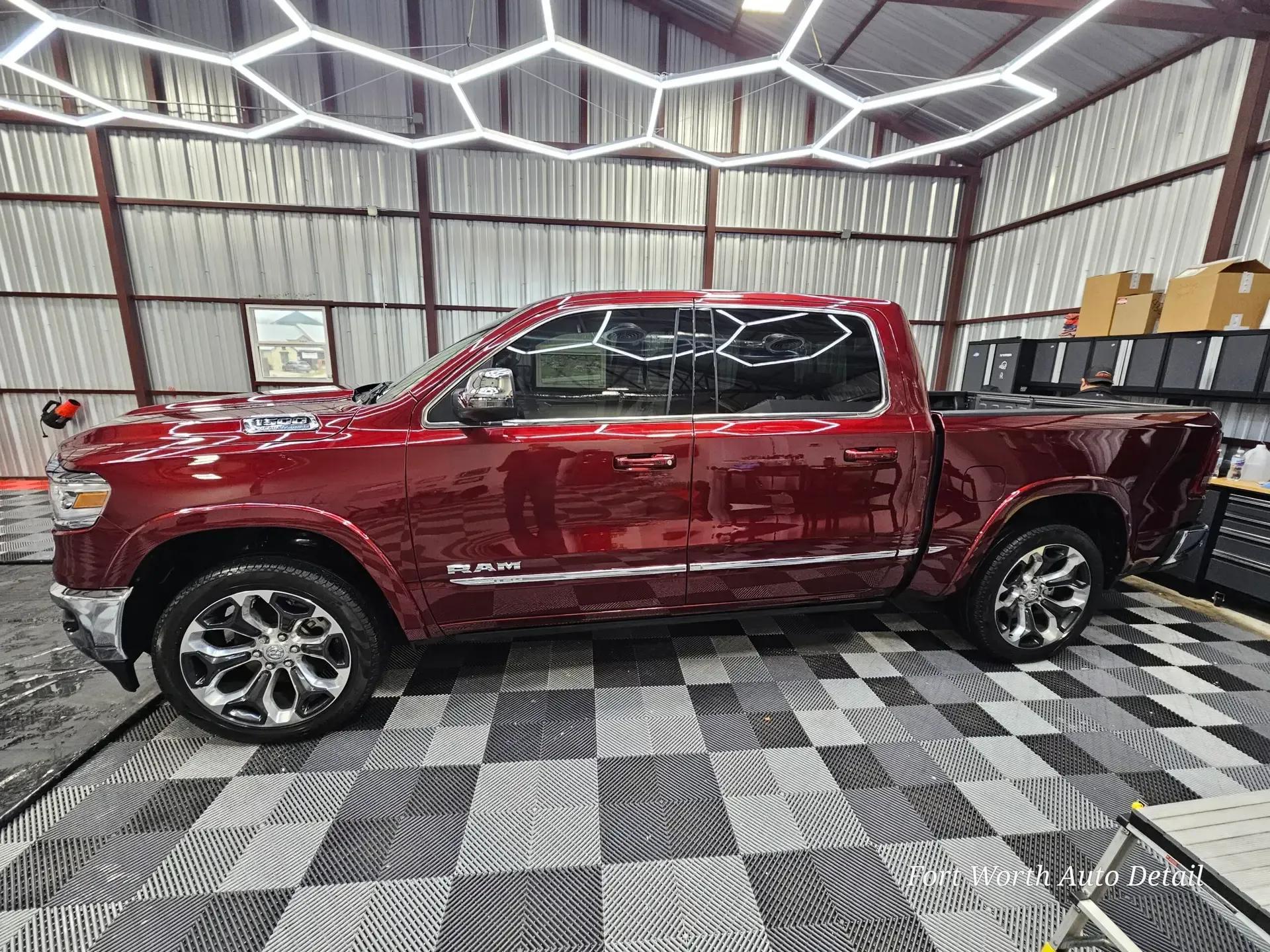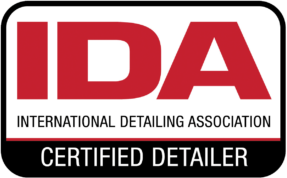What Car Manufacturers Aren’t Telling You
In this economy, perhaps you are looking to save a little more money any way you can. Well the car manufacturers are no different. They are looking for any way possible to squeeze a little more out of every vehicle they make. Right now no one is talking about this, however this could have major ramifications down the road in as little as 5 years.
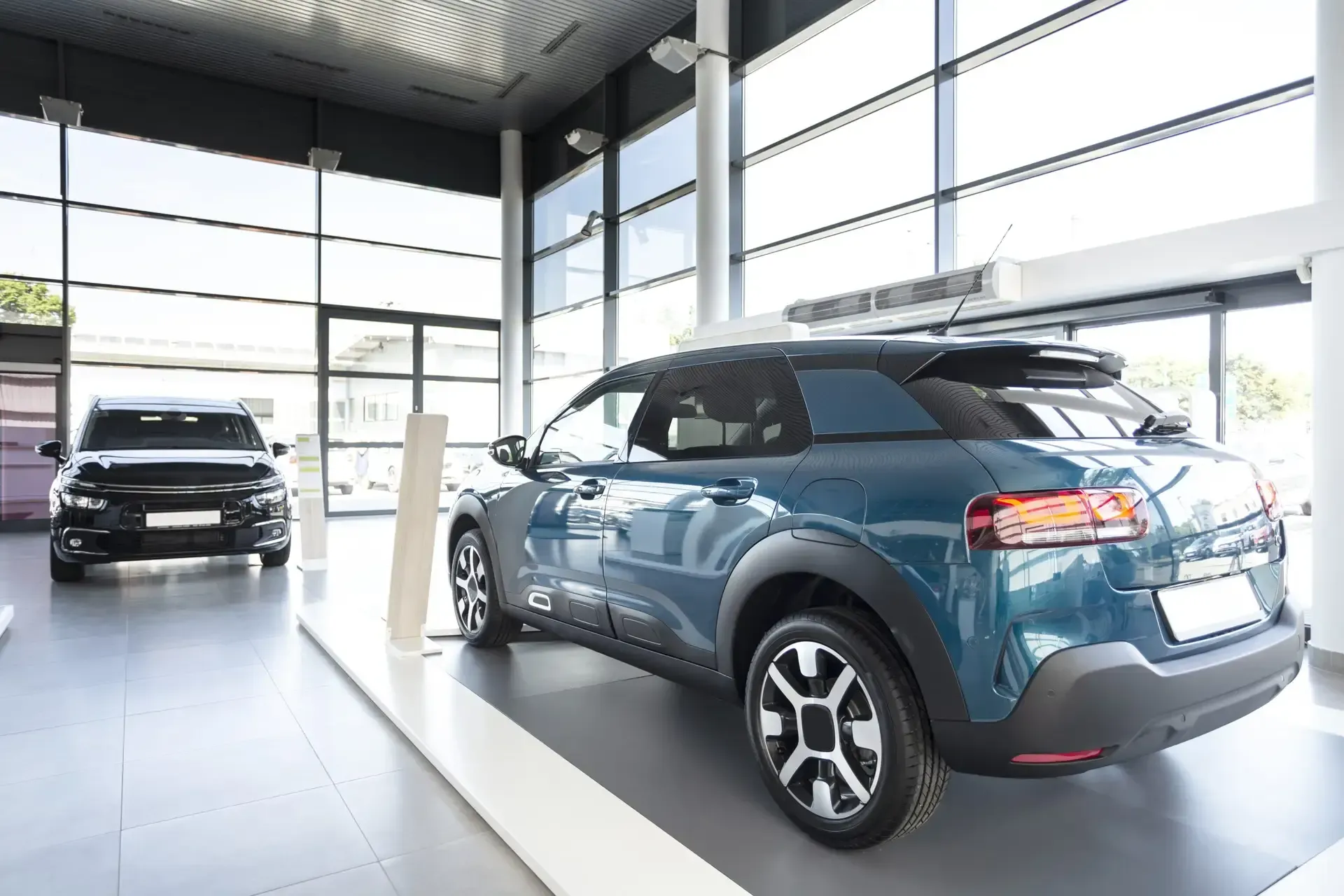
New shiny navy blue car standing on platform in modern car showroom interior with windows
What elements comprise your vehicle’s paint?
So before we get into how car manufacturers are changing, we need to understand the parts that compose your vehicle’s paint. Just about every modern vehicle has a four layer structure when it comes to paint.
- Substrate: This is what the vehicle is actually made of. This is primarily either steel or aluminum. Steel is the most widely used material in car manufacturing due to its strength, durability, and affordability. Steel is used to make the chassis, body panels, and various other structural components of a car. Aluminum is increasingly being used in car manufacturing due to its lightweight properties. Aluminum is used to make various components, such as the hood, doors, and engine parts, as it can help to reduce the overall weight of the vehicle and improve fuel efficiency.
- Primer: This is the first layer that is applied to the metal body of the vehicle. It helps to provide a smooth, uniform surface for the paint to adhere to and also helps to protect the metal from corrosion.
- Base coat: This is the layer that provides the color and visual appeal to the paint job. The base coat is usually made up of a mixture of pigments, resins, and solvents that are carefully blended to create the desired color and finish.
- Clear coat: This is the layer that is applied over the basecoat to provide additional protection and gloss. Clear coat is made up of a transparent resin that is hard and durable, helping to protect the paint from environmental factors such as UV radiation, water, and chemical exposure.
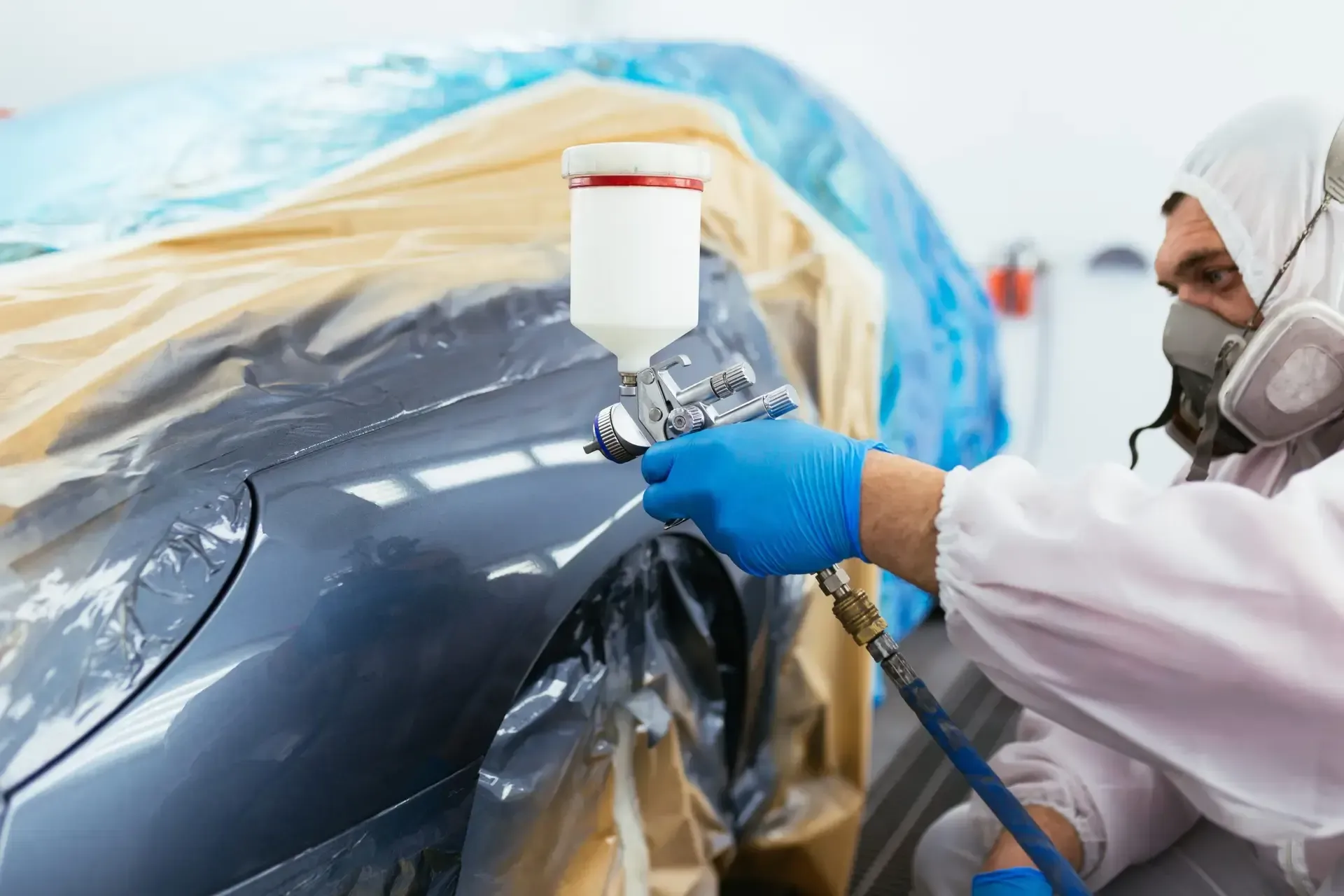
Clear coat is what we want to focus on. As previously highlighted this is actually the top layer of your vehicle, not whatever color your vehicle is.
What is automotive clear coat?
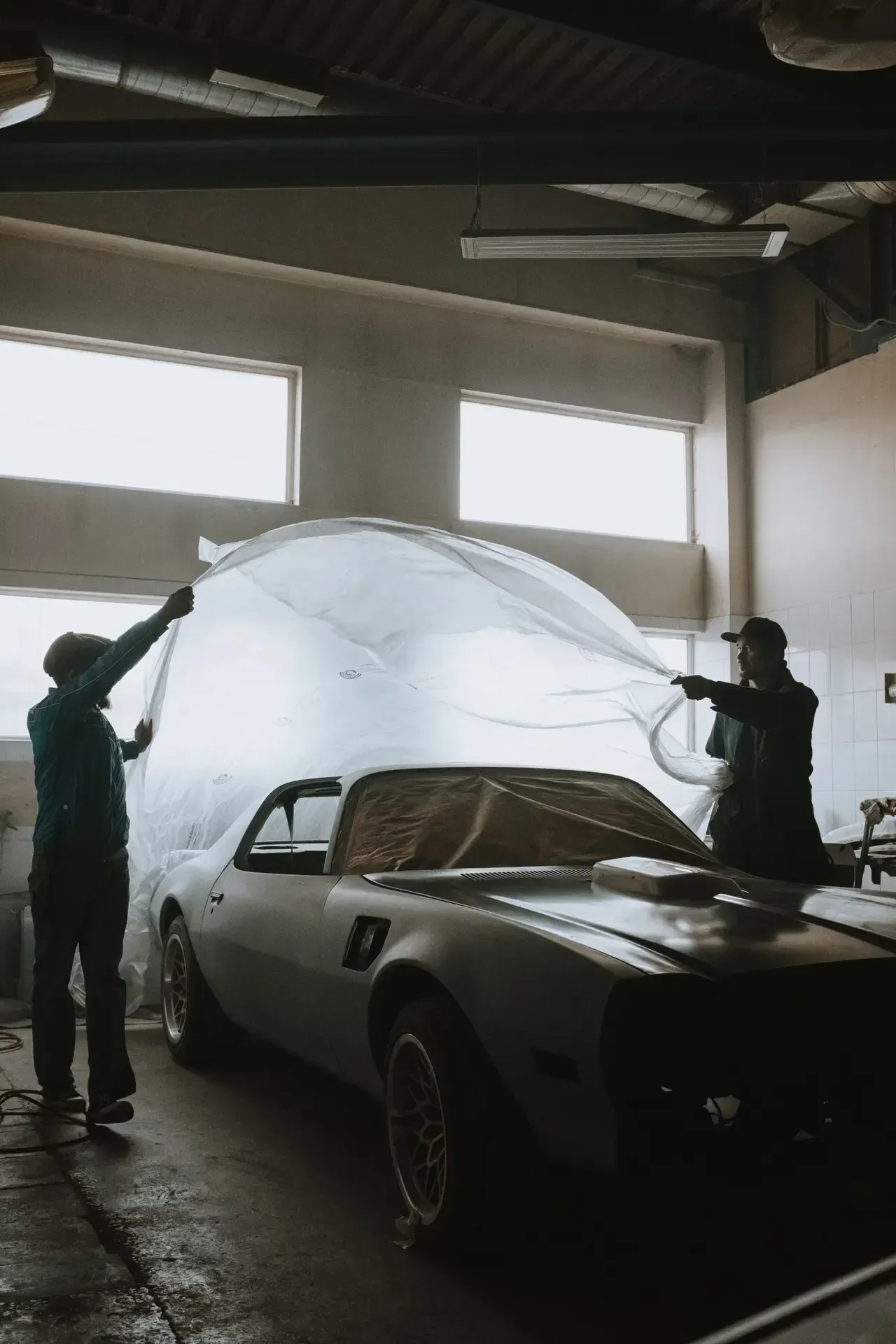
Clear coats typically consist of a clear resin, such as urethane or acrylic, that is mixed with hardeners, solvents, and pigments to create a durable, long-lasting finish. When applied, the clear coat is sprayed in a thin, even layer over the base coat of paint, and then cured through a process of heat and air exposure. This creates a hard, protective layer that shields the paint from the environment and helps to maintain its appearance over time.
When was clear coat first used on cars?
The use of clear coats in the automotive industry became widespread in the 1980s. Prior to that, vehicles were typically finished with a single layer of paint that provided both color and protection. However, with advancements in paint technology and a growing demand for more durable, long-lasting finishes, the clear coat was developed as a way to add an extra layer of protection to the paint job.The first clear coat was introduced by PPG Industries in the late 1970s and quickly gained popularity among automakers and consumers alike. Today, clear coats are a standard feature in the automotive industry, providing vehicles with a high-gloss, durable finish that helps to protect the paint job for years to come.
What does clear coat do on cars?
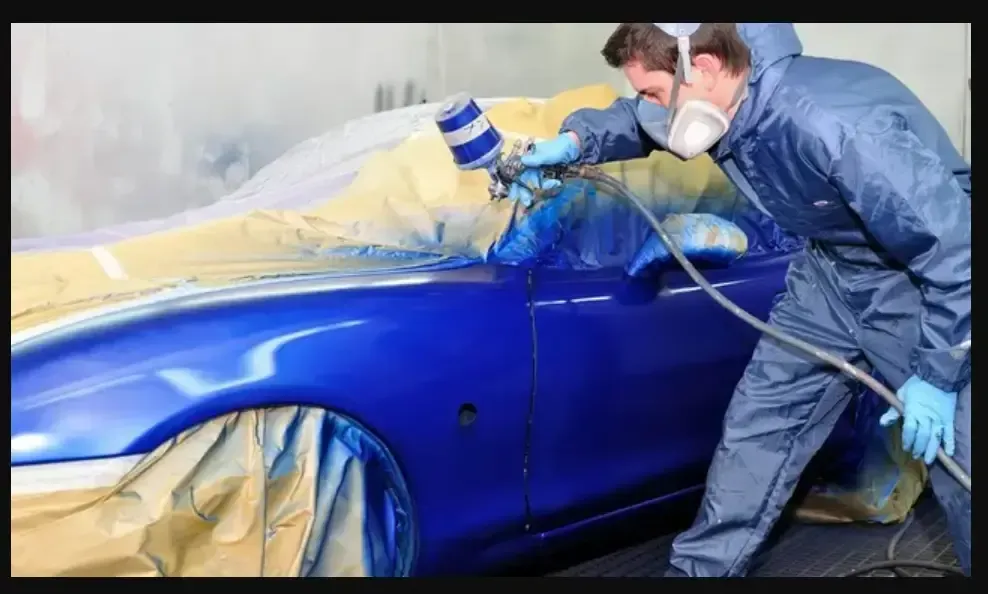
Clear coat serves many functions on a vehicle, but its primary one is protection of the base coat or color coat. The clear coat helps to block harmful UV rays from the sun, which can cause the paint to fade and lose its color over time.
How thick is car clear coat typically?
The thickness of automotive clear coat can vary depending on the specific product and the application method. On average, clear coats are applied in a range of 1.5 to 2.0 mils (thousandths of an inch) thick. This is equivalent to about 37 to 50 microns. It is important to note that the thickness of the clear coat is a critical factor in determining its durability and long-term performance. A clear coat that is too thick can crack or peel, while one that is too thin may not provide adequate protection or produce the desired level of gloss. Automotive paint professionals carefully monitor the thickness of the clear coat during application to ensure that it is consistent and within the desired range.
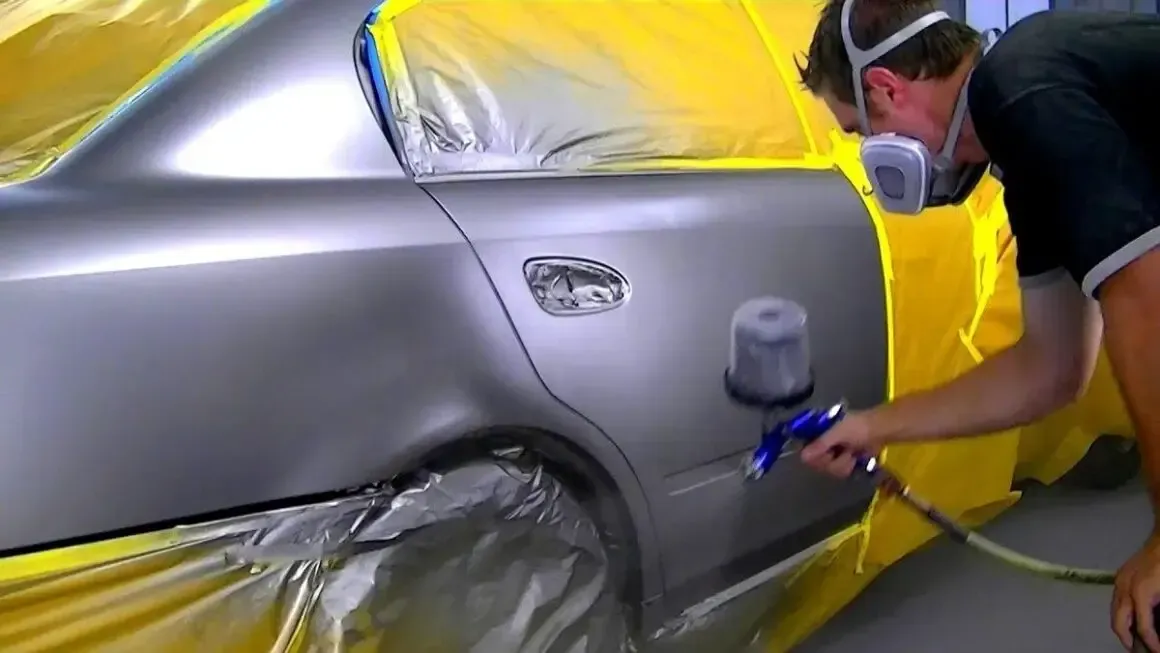
How thick are new vehicle’s clear coat?
As previously mentioned typically a car clear coat will be about 50 microns thick. For reference, a typical human hair is about 70 microns thick. However, newer vehicles typically most cars made after 2020, have around 50 microns of thickness total not just of clear coat. Remember your vehicle’s paint is made up of several layers. The thickness of previous clear coat alone is now the thickness of the primer, base coat, and clear coat. Some of the vehicles we have personally measured only have about 30 microns comprising of all of the layers.
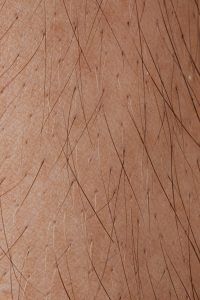
What does this mean for you?
This is going to have several ramifications. One it is going to be more important than ever to protect your vehicle’s clear coat, more on the best ways to do that in a moment. If you do not protect your vehicle you are going to see cars oxidizing at a record pace. What is oxidation? Oxidation on a car is a natural chemical reaction that occurs when the paint on the car’s exterior comes into contact with oxygen and begins to break down. This can cause the paint to fade, lose its luster, and appear dull or chalky. Over time, the paint may also become more brittle and prone to cracking and chipping.
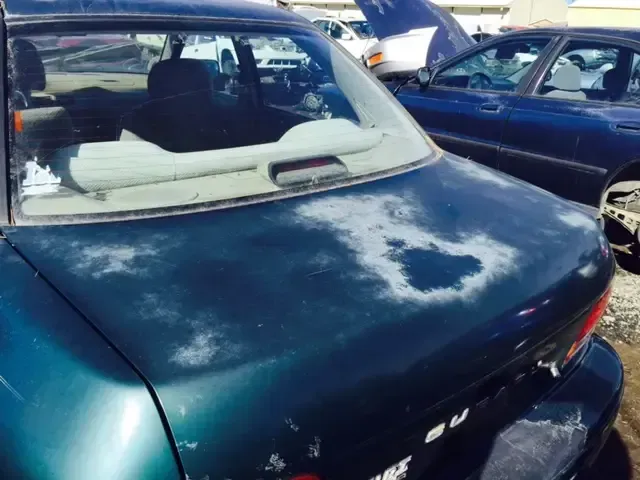
The other factor that is more immediate and what we are already seeing is perfect paint is going to be much harder to achieve going forward. What do we mean by perfect paint? Your clear coat is malleable. It by necessity needs to be. Why? Because your base coat underneath is essentially a liquid. What happens to liquids when it gets hot? They expand. So the clear coat on top has to be able to handle that expansion without breaking or cracking. Because of this, as any one who has been through a car wash a few times before knows, your clear coat is very easy to scratch. Now, on previous vehicles through the process of paint correction, it has been a relatively easy process to remove those scratches. A very time consuming process, but not a difficult one. But paint correction is a removal of clear coat. With practically no clear coat to remove on these new vehicles, it is going to be more and more difficult to remove scratches. So if you do happen to scratch your new vehicle or side swipe someone in the parking lot what previously would have been no big deal now may not be able to be removed.
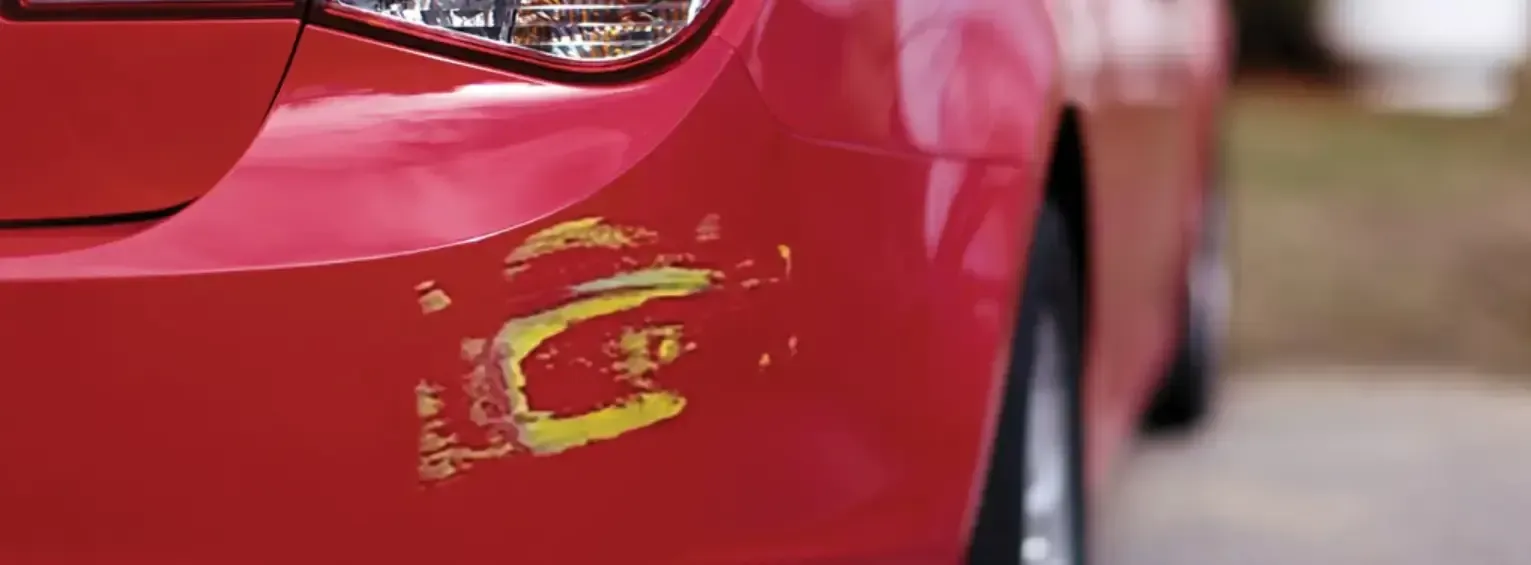
This also has the potential of leading to numerous cars having to be repainted. We at Fort Worth Auto Detail always take very detailed measurements of paint depth to make sure we can safely remove clear coat from the vehicle. If you remove too much clear coat and get down to the base coat then you will need to repaint the affected area which can be very expensive. It is going to be more important than ever to make sure you are trusting a detailer that has the knowledge of how aggressive to be or how aggressive not to be with your vehicle.
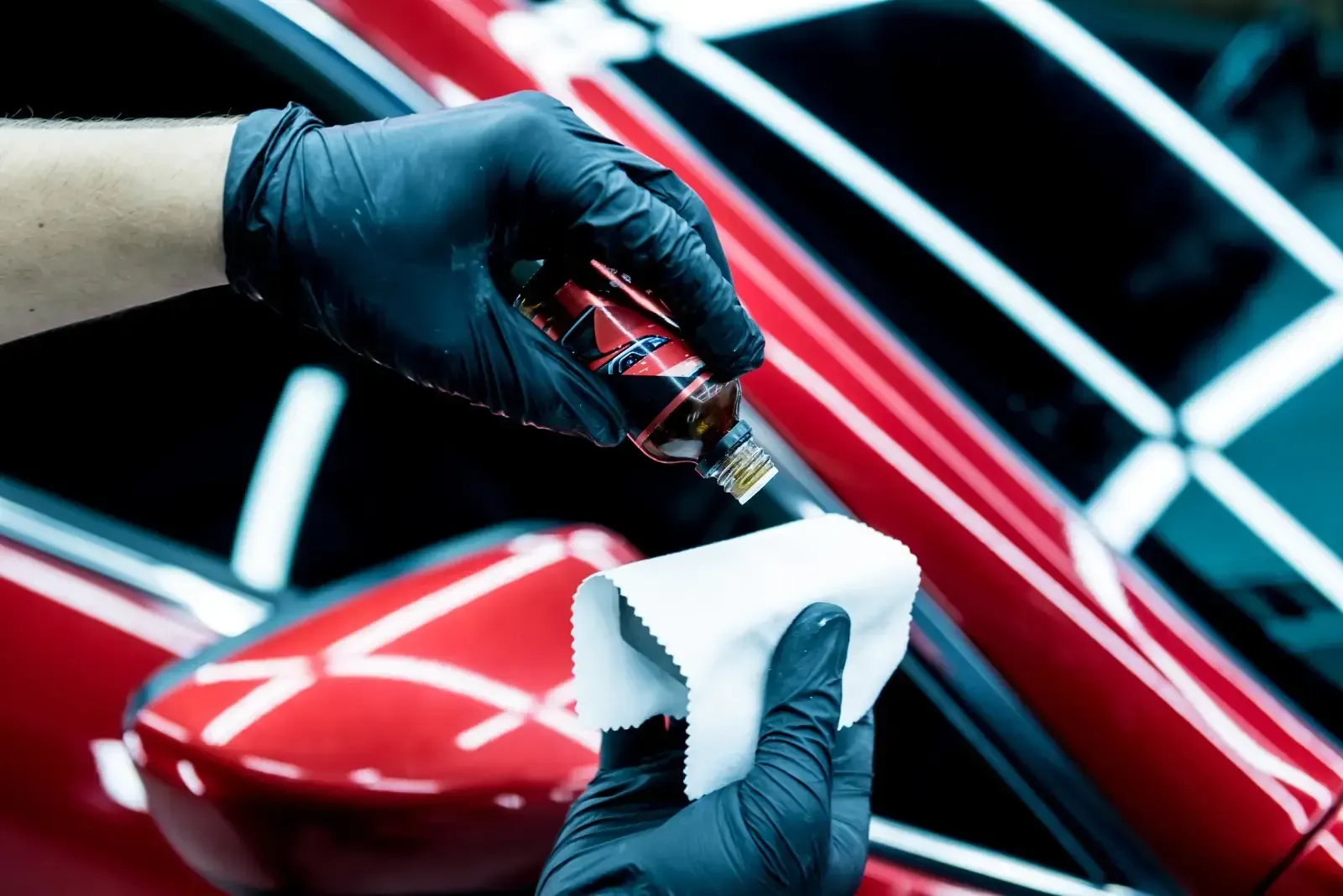
How can a ceramic coating help?
A ceramic coating can help protect a vehicle’s clear coat by providing an additional layer of protection against the elements and other environmental factors that can damage the paint. Ceramic coatings are made from a mixture of ceramic particles, resins, and other chemical ingredients that form a hard, durable layer over the surface of the paint. Some of the key benefits of using a ceramic coating to protect a vehicle’s clear coat include:
- UV protection: Ceramic coatings help to block UV radiation from the sun, which can cause the paint to fade and discolor over time.
- Scratch resistance: Ceramic coatings create a hard, scratch-resistant layer over the paint that can help to minimize the effects of everyday wear and tear.
- Hydrophobic properties: Ceramic coatings can make the paint surface more hydrophobic, meaning that it will repel water, dirt, and other contaminants, making it easier to clean and maintain the vehicle’s appearance.
- Chemical resistance: Ceramic coatings can help to protect the paint against chemical damage, such as damage caused by exposure to bird droppings, tree sap, and other environmental pollutants.
Overall, a ceramic coating can provide a valuable additional layer of protection to a vehicle’s clear coat, helping to keep the paint looking newer for longer and minimizing the effects of environmental factors that can cause damage over time.
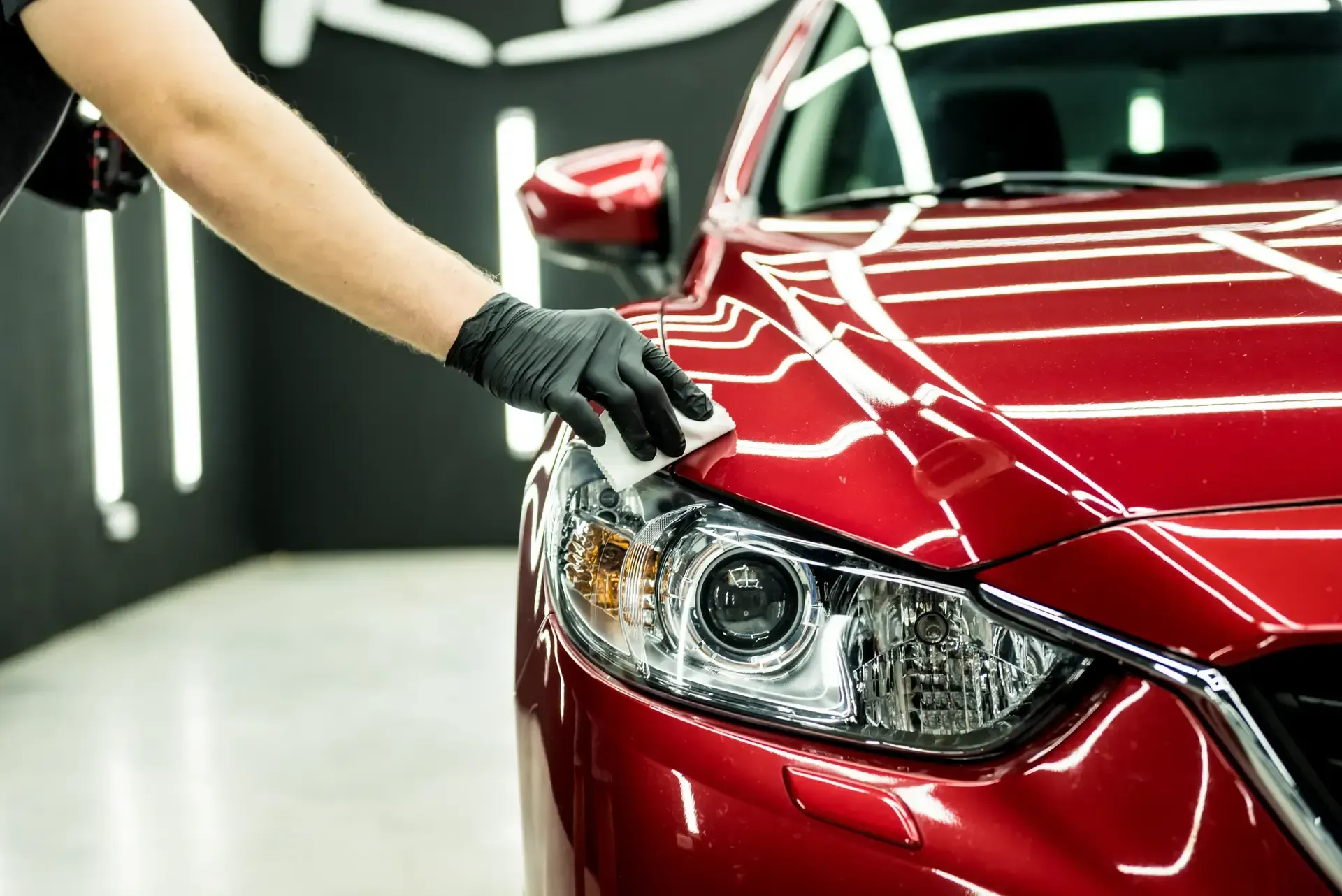
Ceramic Coatings at Fort Worth Auto Detail
We here at Fort Worth Auto Detail use professional grade ceramic coatings by SystemX. They come in different durabilities including a 3 year, a 6 year option, as well as a 10 year option. They all provide fantastic UV protection to protect your clear coat. They are going to make cleaning your vehicle a breeze and keep it looking its best for an incredibly long time. Schedule a free consultation today and we can make sure you have the protection that you need to protect your investment.
Sources
- https://www.motortrend.com/how-to/ccrp-0709-automotive-paint/
- https://www.bernardoecenarro.com/en/besa-lab/types-of-clear-coats-for-cars/#:~:text=Share%20on,different%20mechanical%20and%20chemical%20agents.
- http://islanddetailandcolor.com/a-brief-history-of-automotive-paint/#:~:text=A%20new%20concept%20of%20automotive,transparent%20layer%20of%20clear%20coat.
- https://www.endurancewarranty.com/learning-center/expert-auto-tips/what-is-clear-coat-and-does-my-car-need-it/#:~:text=The%20clear%20coat%20is%20a,your%20paint%20with%20some%20glassiness.
- https://www.defelsko.com/resources/how-to-use-paint-thickness-gauges-for-better-automotive-detailing#:~:text=What%20is%20clear%20coat%3F,(35%E2%80%9350%20microns).
- https://www.systemx.com/
